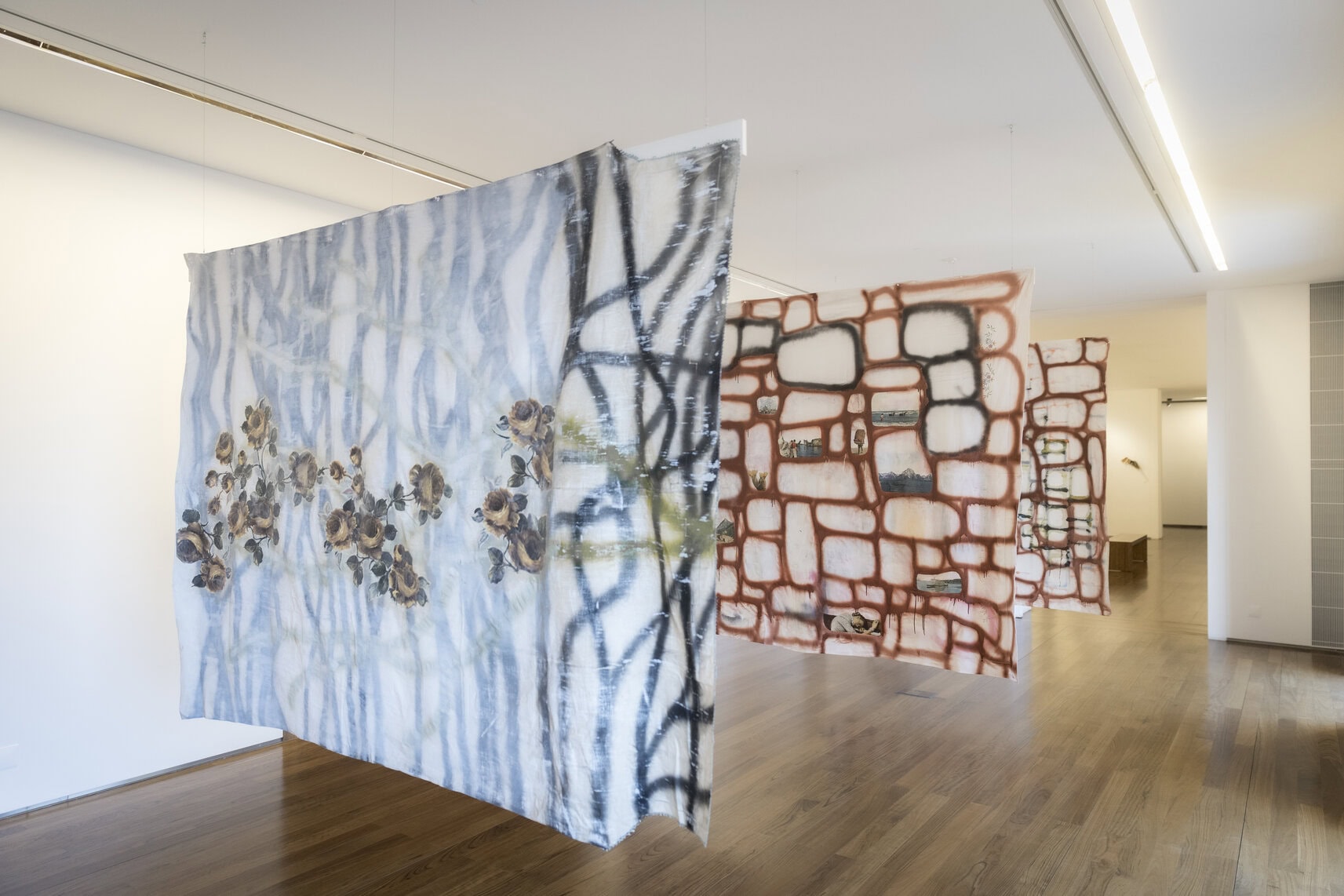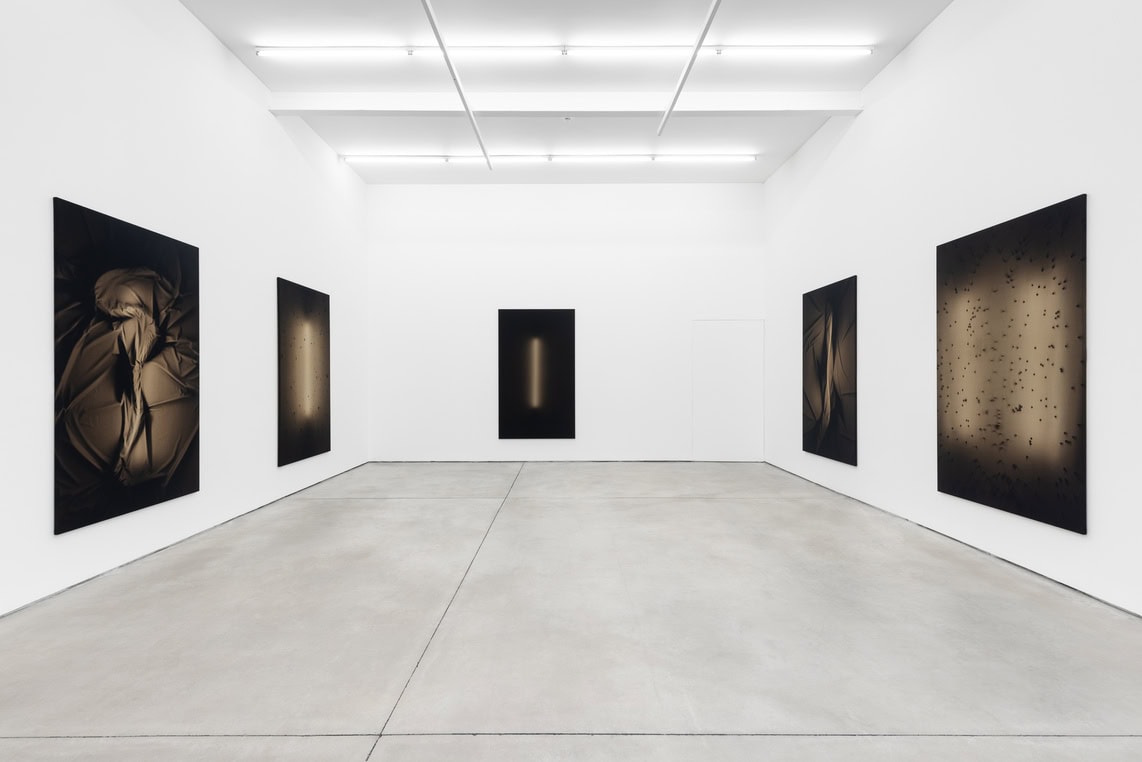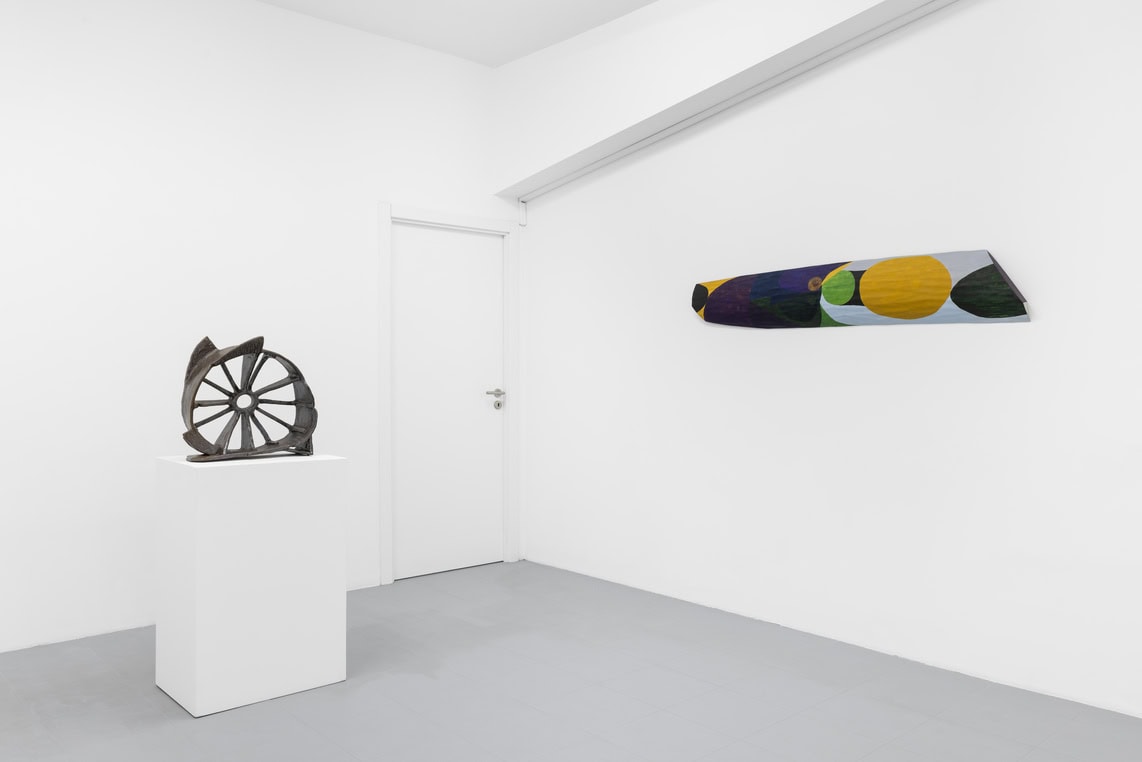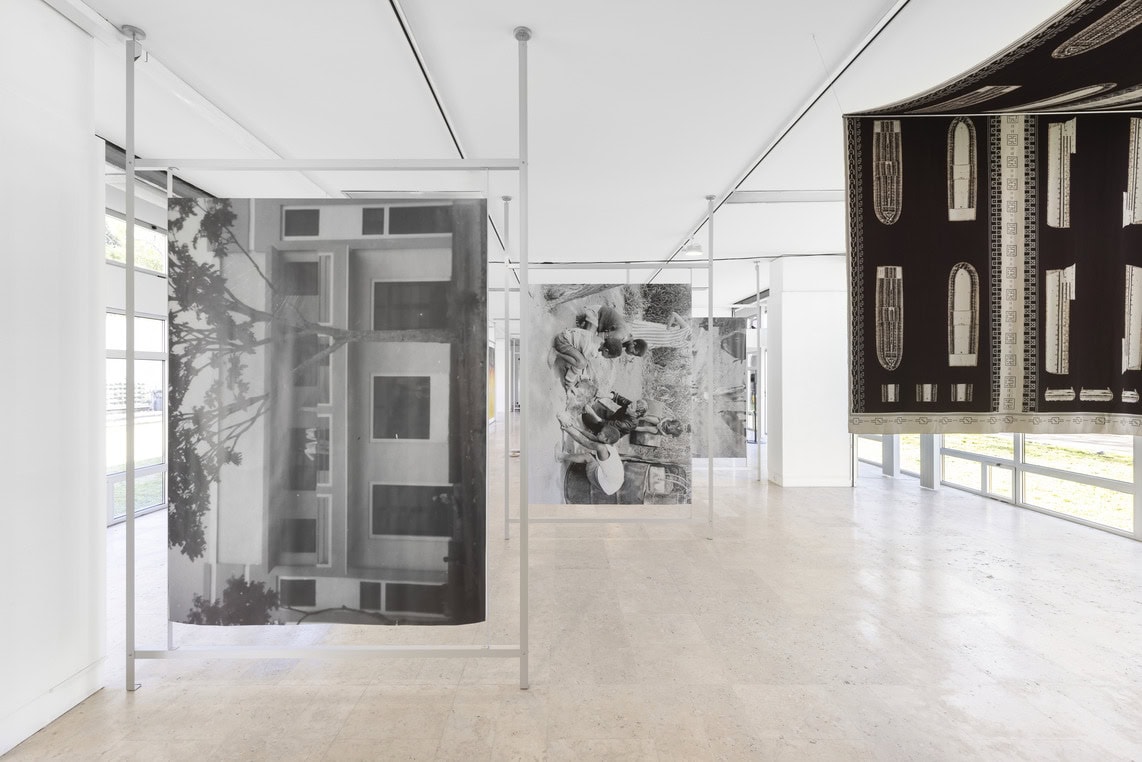There are roaming pathways legible in the weave of space and time.
Sérgio Carronha invites us to follow them through the sensorial experience of Perpétua.
Along the route we encounter clues, traces, objects that hint at life in the making.
This wandering reveals itself in the acknowledgement of nature’s rhythms, in their repetitions across the landscape, absorbing the place’s magic and converting it into symbolic objects.
The artist trusts his own body as compass, letting himself sink into the riverbed, into dry streams, hidden pockets of moisture that persist deep in the earth.
Eliade[1] tells us that rite and symbol express humanity’s recognition of the Cosmos’s ultimate reality. Thus, in every element born of this ritual practice, the real and the sacred mingle without a seam between their realms.
Besides water, understood here as the invisible substance that evaporated when fire touched clay, as the atmosphere that feeds breathing, or as the intangible space through which we move among the works, there are sacred markers that guide us to the imprint of the mountain, of the Sun, of the northern bearing we discern in the landscape, later traced onto stone.
What signs do we discover? What meaning does a body find as it crosses space, aware of its mortal nature?
Perpétua is reborn, yet earth yields to cement. Other eras resurface, shaping both ancestral and human‑made matter.
Water, Earth, Air, Fire.
Extraction, Crushing, Heating, plaster dust that hardens when water is added and envelops the emerging body of Perpétua. On the skin the ochre pigment of the quarried mountain is sprinkled, inseparable in Carronha’s work from the protective, magical force of funerary rites, a dwelling of the dead coated in the earth’s blood.
Transformation, a deepening of techne. From the humus stone is harvested, then burned at high heat, triggering chemical changes that turn limestone and clay into clinker, grey nodules which, once ground, are combined with gypsum and pozzolans or slags, forming cement powder. A mineral memory transfigured. Perpétua’s face reappears, faintly. Her anatomical lines are not yet clear; still, something rises, a presence the artist moors in space and time.
Between geological and industrial matter, processes are reshaped, not in opposition but toward complexity. On one side lies a course of millions of years, deep pressure and heat that metamorphose limestone into marble; on the other is time compressed by industrial fire. This compression drives an exponential acceleration of material change and radiates into global procedures that push the limits of our grasp of an object’s nature, for matter now comes from countless territories, from mountains and rivers interwoven without trace of origin.
We return to the beginning, to Carronha’s Axis Mundi of discovery: Perpétua, Map, Scroll, Net, North, Rebirth, Door, Vent, Sun, words that name each point of contact with the work and the object‑traces of the walk.
Space unveils itself and the body inhabits it, passing through time and rediscovering its ancestral, nomadic condition.
Perpétua, by Sérgio Carronha, is on view at Monitor Gallery until May 10.
[1] Mircea Eliade, The Myth of the Eternal Return, Edições 70, 2019 (1949 – first publication)




